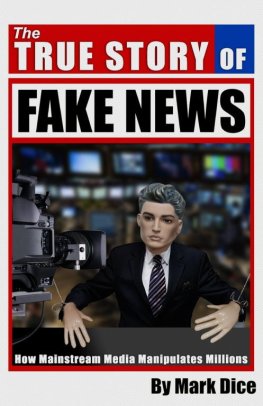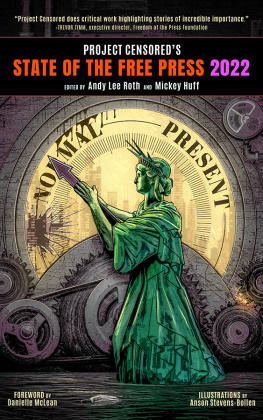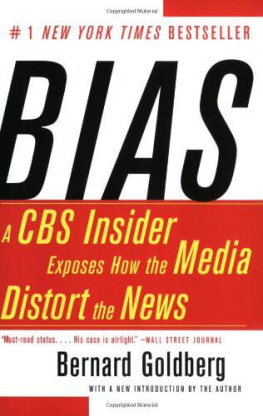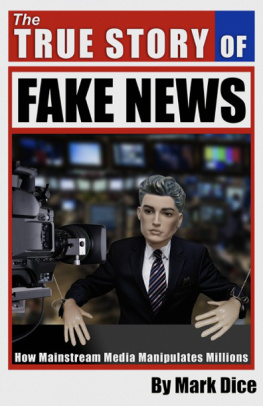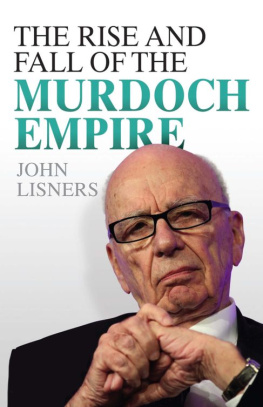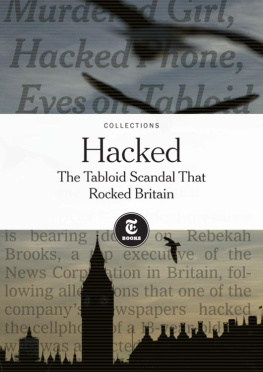I have got bored by the number of times you were right and I was wrong.
A senior police officer to James Hanning
There is one mystery figure at the heart of Hackergate Glenn Mulcaire, the News of the World s top private investigator. The former AFC Wimbledon footballer has never spoken publicly or in court about his work investigating and backing up front-page news stories (such as the News of the World s award-winning David Beckham scoop).
Mulcaires arrest in 2006 for intercepting royal-household phone messages barely registered at the time. Yet his work has continued to generate headlines and embarrassment for the establishment with a Prime Minister on the back foot after his former aide Andy Coulson was sentenced on 4 July 2014 to 18 months in prison. Mulcaire is the insider whose testimony is essential for grasping how far the media rot has spread through Britain.
James Hanning, deputy editor of the Independent on Sunday has investigated the story from the beginning, questioning key players from reporters to Andy Coulson himself. For The News Machine he gained exclusive access to Mulcaire and his family who are deriving no financial benefit from this book over an extended period of time, and interviewed senior politicians, policemen, lawyers and journalists who were involved.
The News Machine is the first complete look at the sharp edge of our daily news. How did the police and the press regulator fail to find the truth? How did the News of the World protect its criminal hierarchy with lies, threats, and money? How did the royals and our government get caught up in the cover up?
James Hanning is deputy editor of the Independent on Sunday. His expertise was sought by the Leveson Inquiry and he previously co-wrote an acclaimed biography of David Cameron. He lives in south-west London.
Glenn Mulcaires was the go-to top investigator of the News of the World earning more than some executives on the paper. He pleaded guilty to six charges of phone hacking and lives in Surrey with his wife and five children.
THE
NEWS MACHINE
HACKING
THE UNTOLD STORY
James Hanning
with
Glenn Mulcaire
London
GIBSON SQUARE
Contents
1
Not a Word
For a long time, very little was known for certain about the phone-hacking scandal surrounding News International. It even barely intruded on the nations radar that some grubby, soulless guy and an accomplice on the News of the World had been sent to prison, for eavesdropping on members of the royal household. Bad business, thought those who did hear about it. But they were punished, so presumably any problem had been nipped in the bud. The problem was that within weeks of the two mens conviction, the person paying their wages, who resigned over the affair, had become one of the future Prime Ministers closest confidants.
To some this was vindication of the move-along-nothing-to-see stance taken by the paper. To others, it smelt, raising ever louder questions of who knew what. The story was to develop into what Labour MP Tom Watson predicted would be Britains Watergate. He had some understanding of the authority and responsibility that goes with being an editor, it invited suspicion. The insertion of Andy Coulson into the heart of the opposition was smooth enough, but was remarkable for the opportunism shown by those who brought it about. The more that emerged, the more surprising that shame-lessness. The courts have gone some way towards apportioning blame. This book seeks to look at how the News of the World got to such a state, and what happened subsequently.
Many have had or will have their say in court. Some have been believed, some not. The one person at the heart of it all, though, has said next to nothing since his arrest on 8 August 2006. When Glenn Mulcaire did apparently say something publicly, his words were drafted by his lawyer. Maybe he had something to say for himself after all?
But, surely, we all know Glenn Mulcaire is the crook whose dirty work caused all the phone-hacking trouble? People may argue about who asked him to do this or that, or what their motivation might have been, but the immutable fact at the bottom of it all was that Mulcaire was an unscrupulous and greedy private investigator who cared nothing for his victims privacy or feelings? A man who sat in a south London trading estate systematically trawling through the phone, mortgage and medical records of hundreds of people surely wouldnt have the audacity to claim motives other than the lowest, sleaziest and most reprehensible? Yet almost nobody knows what has been going on in Glenn Mulcaires mind in the years since he was first arrested. It has suited too many people for him not to speak. The phone hacking scandal became both a blame game and a study in deniability. Mulcaire, initially a beneficiary of both, became a victim of both. The more guilty people who said they knew nothing, the more Mulcaire must have been responsible. Because he was unable to speak without risking enormous legal and financial claims against him, all the more filth was piled at his door.
Mulcaire and Clive Goodman both took one for the company in 2007 and pleaded guilty, when more senior people at News of the World escaped charges (for the time being, as it turned out). He was dismissed as a lawless rogue, yet his bosses knew his work was responsible for winning awards for his newspaper.
To meet Mulcaire is to be surprised, however, and to know his story is to get a feel for how part of an industry worked. How a public appetite for salacious stories, light and heavy, put so much pressure on those responsible for churning them out that the news machine that they were operating simply went up in smoke. Journalism is full of decent people who start off wanting to make the world a better place but who find themselves steered off course by the demands of the market place. They like the idea of holding the powerful to account and standing up for the downtrodden, but are confronted by a public more interested in Miley Cyrus and Cristiano Ronaldos latest conquest than poverty and global warming. So an accommodation has to be reached.
Nowhere did this accommodation with the real world go more spectacularly wrong than in the case of Glenn Mulcaire. It may surprise those who read about the 6,000 people claimed to have been victims of Mulcaires eavesdropping that he too signed up to work for the News of the World with good intentions. The streetwise investigator, the man David Blunkett wanted to rot in hell, the dab hand at low-level blagging and company searches, had wanted to use his talents for the general good.
Specifically, from the age of 17, he had wanted to be a private detective and help catch criminals. As he grew into the profession, through bread-and-butter company searches, garnished with some light blagging, he believed the details of his painstaking work could be used in the publics interest. His work was indeed scrutinised by the police, eventually, but not as he had intended. On 7th December 2011 he was arrested for the second time and, again, put on trial, for the unlawful interception of voicemails. By this time, the News of the W orld s disregard for the law had become directly responsible for the rewriting of the entire rule book of British press regulation. His story, then, is also the story of the modern media.
How did this come about? What sort of man can call himself God-fearing and public-spirited yet behave in a way that leads directly to the disgrace and closure of one of the landmarks of British journalism, putting a bomb underneath not only the media as whole, but the political and police system as well? That is one of the questions this book seeks to answer, calling for the first time on extensive evidence from Mulcaire himself.
It will also look at Mulcaires involvement in the case of Milly Dowler, the story of the kidnapped and later murdered Surrey schoolgirl that turned the phone hacking saga from a hiccup in media regulation to a national outrage. It will show how Mulcaire stood up one of the biggest scoops of the decade. How he helped ferret out some of the countrys most dangerous sex offenders. It will ask David Cameron some hitherto unasked questions about how he could have hired Andy Coulson, editor of the News of the World within weeks of the phone hacking scandal first exploding.
Next page

